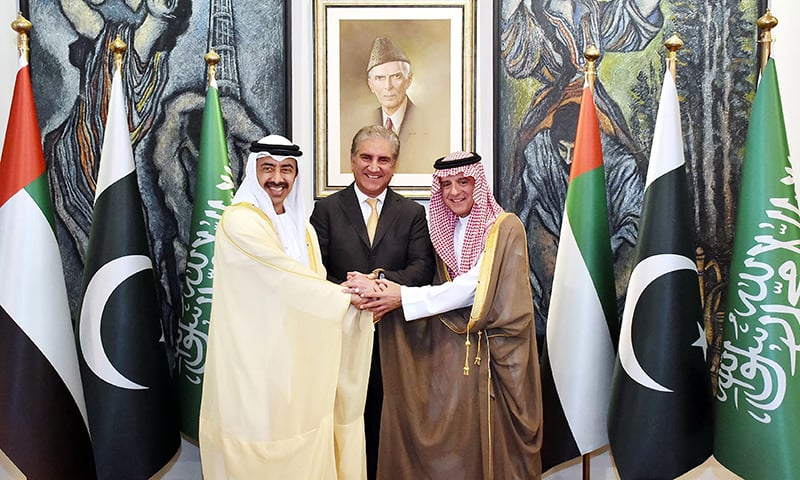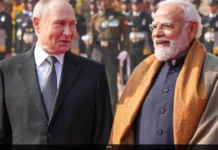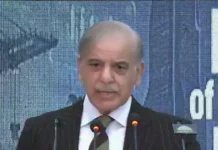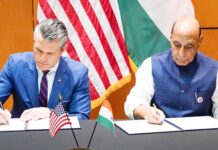ISLAMABAD: Pakistan Prime Minister Imran Khan Wednesday discussed the situation in Kashmir with visiting foreign ministers of Saudi Arabia and the United Arab Emirates (UAE), amidst tensions with India after New Delhi abrogated Article 370. Saudi Minister of State for Foreign Affairs Adel bin Ahmed Al-Jubeir and Minister of Foreign Affairs and International Cooperation of the UAE Sheikh Abdullah bin Zayed bin Sultan al-Nahyan arrived here early in the day and were received by Pakistan Foreign Minister Shah Mahmood Qureshi.
Khan said that Saudi Arabia and the UAE along with the world should play a role in urging India to reverse its recent decision on Kashmir. Tensions between India and Pakistan have spiked after New Delhi withdrew Jammu and Kashmir’s special status and bifurcated it into two union territories. A statement released by Khan’s office said, “Both countries would remain engaged to help address the current challenges, defuse tensions, and promote an environment of peace and security.”
The two ministers also visited the Foreign Office and held a detailed meeting with Qureshi, who briefed them about the latest situation in Kashmir. The two ministers are expected to meet Army chief General Qamar Javed Bajwa. The Saudi minister’s visit came after Prime Minister Khan telephoned Saudi Crown Prince Mohammed bin Salman and discussed the situation in Kashmir.
The latest phone call was the third between the Prime Minister and the Saudi Crown Prince in three weeks. Saudi Arabia is a close ally of cash-strapped Pakistan and Riyadh has provided aid worth billions of dollars to Islamabad to overcome its financial woes. Pakistan, which has downgraded its diplomatic ties with India, has been trying to raise the Kashmir issue at various international fora.
Khan has been repeatedly warning the possibility of a military confrontation between the two nuclear-armed neighbors over the Kashmir issue. Asserting that abrogation of Article 370 was its internal matter, India has strongly criticised Pakistan for making “irresponsible statements” and provocative anti-India rhetoric over issues internal to it. PTI







